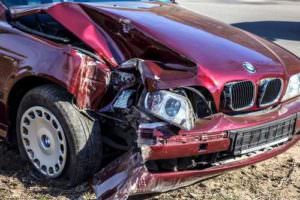 When making a vehicle damage claim after an accident, there are several things to consider, especially if the insurance company says your car is a total loss. The first is which insurance will pay for the damage to your car, yours or the insurance of the other driver. The insurance that covers the damage depends on whether you live in a no-fault state or in a state that uses traditional fault-based liability. Delaware has only no-fault coverage, which means that the insurer will pay for certain damages regardless of who was at fault (and regardless of whether anyone was at fault). Pennsylvania and New Jersey have choice no-fault coverage, which means that their residents can choose between no-fault coverage like Delaware’s or a traditional insurance policy that will only allow recovery for vehicle damage if someone was at fault. However, even with a traditional insurance policy, people may still be able to opt for additional coverage such as collision coverage. Collision coverage is supplemental insurance coverage that covers any and all damage that your vehicle sustains in an accident. Collision coverage can be expensive, since it pays for vehicle damage regardless of who caused the accident at issue.
When making a vehicle damage claim after an accident, there are several things to consider, especially if the insurance company says your car is a total loss. The first is which insurance will pay for the damage to your car, yours or the insurance of the other driver. The insurance that covers the damage depends on whether you live in a no-fault state or in a state that uses traditional fault-based liability. Delaware has only no-fault coverage, which means that the insurer will pay for certain damages regardless of who was at fault (and regardless of whether anyone was at fault). Pennsylvania and New Jersey have choice no-fault coverage, which means that their residents can choose between no-fault coverage like Delaware’s or a traditional insurance policy that will only allow recovery for vehicle damage if someone was at fault. However, even with a traditional insurance policy, people may still be able to opt for additional coverage such as collision coverage. Collision coverage is supplemental insurance coverage that covers any and all damage that your vehicle sustains in an accident. Collision coverage can be expensive, since it pays for vehicle damage regardless of who caused the accident at issue.
The next thing to consider is that insurers will only pay damages up to the particular policy’s coverage limits. For example, if the other driver was at fault and caused $25,000 of damage to your car, but he or she only has $10,000 of property damage coverage, his or her insurer will only pay $10,000 toward your repair costs. The only way for you to get the remaining $15,000 of repair costs would be from your own collision coverage and/or uninsured/underinsured motorist coverage if you have such a policy.
If the car is deemed a total loss, it will only pay you the fair market value of your car as of the day of the accident. Unfortunately, an insurer is only required to pay damages up to the fair market value of the destroyed property, even if you owe more than the car’s value on your car loan. This means that you will still owe payments on your car loan even though you no longer have a car. Additionally, if an insurer declares your car to be a total loss, the insurer has the legal right to take your car so that it can sell it on the secondary market and recoup some of its losses, and the insurance company will often do so.
If you disagree with the insurance’s valuation of your car and want to pursue further action, it is possible to negotiate a better figure or to file a lawsuit. However, you would need to present evidence as to exactly what shape the car was in and evidence as to the car’s actual value to succeed on a claim.
Have you been in an automobile accident? Gibson & Perkins, PC has a team of experienced litigators that are available to discuss, and there’s no charge for your initial consultation – click here to learn more.
